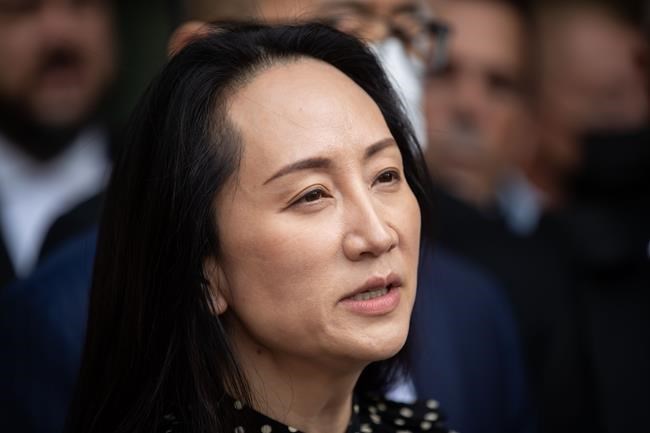WASHINGTON ‚Äî The United States closed the book Friday on the legal saga of Meng Wanzhou, the Chinese tech executive whose arrest in Canada in 2018 triggered a global standoff with foreign-policy implications that reverberate to this day.¬Ý
A federal judge in New York formally dismissed the last remaining indictment against Huawei's chief financial officer after prosecutors agreed Meng had abided by the terms of her deferred prosecution agreement.¬Ý
"It is hereby ordered that the third superseding indictment in the above-captioned matter as to the defendant Wanzhou Meng is hereby dismissed with prejudice," District Judge Ann Donnelly said in a written decision.¬Ý
The order came four years after Meng was first detained in Vancouver in December 2018 as part of a controversial U.S. extradition request that dragged Canada into the middle of an intractable legal dispute with China.¬Ý
It's the final stage of the agreement, or DPA, that saw Meng released from custody in September 2021, nearly three years after she was arrested at the behest of the U.S. to face fraud charges related to American sanctions against Iran.
Prosecutors accused Meng and Huawei of stealing secrets and using Skycom, a Hong Kong communications firm, to sell tech equipment to Iran in defiance of sanctions under the International Emergency Economic Powers Act.¬Ý
Her detention quickly spiralled into a tense, protracted three-way dispute after two Canadian nationals, Michael Kovrig and Michael Spavor, were arrested in China in an apparent act of retaliation.¬Ý
Meng, the daughter of Huawei founder Ren Zhengfei, pleaded not guilty to all charges as part of the agreement. In exchange, she agreed to a statement of facts acknowledging, among other things, that Skycom ‚Äî which she had claimed was a partner with Huawei ‚Äî was essentially a wholly owned subsidiary.¬Ý
The agreement made it clear she would be in violation of the deal if she tried to contradict or deny the statement, which would then be admissible in any future court proceedings.¬Ý
U.S. attorney Carolyn Pokorny filed the request to dismiss the indictment Thursday, four years to the day after Meng's detention in Vancouver.¬Ý
"In the absence of information that (Meng) has violated any terms of the DPA through Dec. 1, 2022 ‚Ķ the government respectfully moves to dismiss the third superseding indictment in this case," Pokorny wrote.¬Ý
Spavor and Kovrig, who came to be known around the world as "the two Michaels," were freed by Chinese authorities at almost the precise moment that Meng was being flown home.
China has long denied any link between the two cases, despite the timing of both the initial arrests and their eventual release.¬Ý
Their detention complicated Canada's efforts to enunciate a position on China in general and Huawei in particular as a potential national security threat.¬Ý
In May, the federal Liberal government announced it was banning the company and another Chinese vendor, ZTE, from participating in the development of Canada's next-generation mobile networks.
Foreign Affairs Minister Mélanie Joly finally unveiled Canada's Indo-Pacific strategy on Sunday, in the very city where Meng was first detained. The Liberals had first promised it back in 2015.
It described China as "an increasingly disruptive global power" and included plans for an international summit on "arbitrary detention," as well as efforts to draft new efforts to push back on human rights violations and "economic coercion."¬Ý
This report by The Canadian Press was first published Dec. 2, 2022.
James McCarten, The Canadian Press




